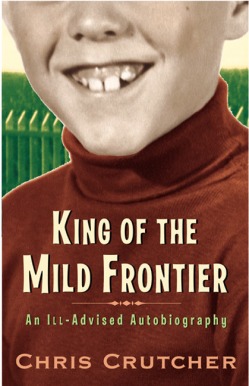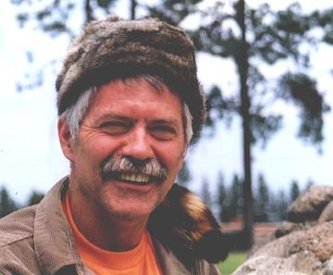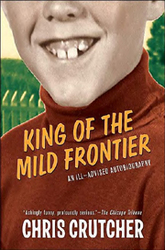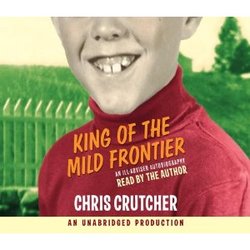- Home
- Contact
- Biography
- NCTE/ALAN 2013 Q&As
- Author Visits
-
Crutcher Books
- Other CC Books
- For Educators
- Angus -- The Movie
- Older News Briefs
- Photo Albums
- Scrapbook
- CC Videos
- Student Projects
- Censorship
- Banned Book Videos
- Teens CAN Stop Censors
- Banned Books Week
- Extras!
- CC Press
- Letters to CC
- Movie News
-
Crutcher Speeks
- Update Bantleman/Tjiong
- Nod to Gnuts
- Hip-Hop
- Good Day...
- Gun Referendum
- Free Neil and Ferdi >
- Responsi-damn-bility
- Whacking on Your Children >
- Piling On
- Biopsy Biography
- Walter Elevated Us All
- Different Direction
- Parenting Guidance
- Goodbye, Ned.
- Happy Birthday, Crutch!
- Forrest Bird Charter School
- Senator Portman
- My Gun Rant
- Maybe Now (Guns & Mental Health)
- Support Your Local Pragmatist
- So You Want to Be a Righter
- Philosophy and Humanity
- We Are Paterno
- Boy Scout "Leadership"
- Thoughts on McQueary
- To Meghan Cox Gurdon/WSJ
- India 2011
- Crutcher-Price Blog
Foreface
(Couldn't decide whether it was a Foreword or a Preface)
Before anything else, let me declare that I acquired my coonskin cap through the miracle of roadkill. No single raccoon was slaughtered for the frivolous purpose of linking my autobiography to the late, great Davy Crockett. In fact, a family of raccoons regularly passes through my cat door, unchallenged, on their way to a sumptuous all-you-can-eat meal of Fancy Feast gourmet cat food and I caught them the other day surround my cap, heads bowed reverently. If you haven't seen a circle of reverent raccoons, you haven't lived. At any rate, they seemed not to begrudge my ownership.
I began writing this autobiography in response to the question all authors hear more than any other, and few answer adequately: "Where do you get your ideas?" (I've had little luck with, "Pocatello, Idaho," as an answer, and not much more with, "The same place you get your.") The truth is, I get my ideas from my life, and I thought it might be fun and interesting to highlight some of those times and places. Of course, the original purpose only gets it started, and I wasn't too far into it before I forgot about answering that question and began to delight and grimace at my remembrances. Given that memory is selective, this book probably contains as much fiction as any of my novels, and of course I will say that to the members of the legal community representing my siblings and others who may take issues with the accuracy of my recall. My brother will deny at the gates of Heaven that he ever gunned me down like an electronic arcade toy, and my sister might well take issue that it was ever her habit to "rifle through her stools." I can certainly imagine I'll have some 'splainin' to do to my good wonderful friend Paula Whitson.
But exact accuracy aside, the heart of my life is here. There was far more to my father than the calculating teacher, more to my mother than her responses to the stranglehold and heartbreak of addiction. Nothing is black and white. But it was fun and provocative to play with the arbitrary threads of my life that presented themselves to weave into my personal story. Please know, dear reader, that if you believe you see yourself within these pages, I will deny with my dying breath that I ever knew you.
Chris Crutcher
Before anything else, let me declare that I acquired my coonskin cap through the miracle of roadkill. No single raccoon was slaughtered for the frivolous purpose of linking my autobiography to the late, great Davy Crockett. In fact, a family of raccoons regularly passes through my cat door, unchallenged, on their way to a sumptuous all-you-can-eat meal of Fancy Feast gourmet cat food and I caught them the other day surround my cap, heads bowed reverently. If you haven't seen a circle of reverent raccoons, you haven't lived. At any rate, they seemed not to begrudge my ownership.
I began writing this autobiography in response to the question all authors hear more than any other, and few answer adequately: "Where do you get your ideas?" (I've had little luck with, "Pocatello, Idaho," as an answer, and not much more with, "The same place you get your.") The truth is, I get my ideas from my life, and I thought it might be fun and interesting to highlight some of those times and places. Of course, the original purpose only gets it started, and I wasn't too far into it before I forgot about answering that question and began to delight and grimace at my remembrances. Given that memory is selective, this book probably contains as much fiction as any of my novels, and of course I will say that to the members of the legal community representing my siblings and others who may take issues with the accuracy of my recall. My brother will deny at the gates of Heaven that he ever gunned me down like an electronic arcade toy, and my sister might well take issue that it was ever her habit to "rifle through her stools." I can certainly imagine I'll have some 'splainin' to do to my good wonderful friend Paula Whitson.
But exact accuracy aside, the heart of my life is here. There was far more to my father than the calculating teacher, more to my mother than her responses to the stranglehold and heartbreak of addiction. Nothing is black and white. But it was fun and provocative to play with the arbitrary threads of my life that presented themselves to weave into my personal story. Please know, dear reader, that if you believe you see yourself within these pages, I will deny with my dying breath that I ever knew you.
Chris Crutcher
Reviews
Best Novel for Teens That Adults Would Love if They Knew About it:
King of the Mild Frontier by Chris Crutcher
(I" read much of it aloud to my parents, and all three of us laughed so hard, we were in tears.")
Publisher's Weekly 2003 Cuffies (1/19/2004)
"Crutcher's voice is firmly adult yet vividly true about his past thoughts. Achingly funny, profoundly serious."
Chicago Tribune -- April 27, 2003
"Seldom has the fraught and difficult time of adolescence had so fine a chronicler as Chris Crutcher, the multi-award-winning author of some of the best known and most loved young adult novels, including Staying Fat for Sarah Byrnes, Whale Talk, Ironman, and Running Loose. Now he's written a memoir, King of the Mild Frontier: An Ill-Advised Autobiography (Greenwillow, 2003), in which he tells the story of his formative years in Cascade, Idaho. Fans of Crutcher's novels know that he writes winsomely in a tone that is both humorous and heartbreaking. It's no different in his memoir, except that here he shows himself willing to discuss some difficult issues in his own life, including an overly demanding father, an alcoholic mother, the effects of being burdened with a terrible temper, and no athletic ability. From the cover - a buck and gap-toothed kid grinning goofily - to the insight the book gives into his own novels, this is a must-read for anyone, of any age, interested in young adults and their literature."
Nancy Pearl, Washington Center for the Book
KUOW Public Radio's "The Beat" -- September 22, 2003
"Boys 14 and older who already know what an honest, this-is-real-life author Crutcher is (Whale Talk, Staying Fat for Sarah Byrnes, Chinese Handcuffs) won't be surprised by his straightforward talk about growing up in a small town in Idaho. King of the Mild Frontier is a laugh-out-loud book at its best. Be sure to pass this one along to dad when you're finished - he'll smile and remember, too."~ Holly Atkins, St. Petersburg Times
July 28, 2003
"King of the Mild Frontier: An Ill-Advised Autobiography, succeeds on two levels. First, it will bring back a flood of memories for anyone who ever shot a BB gun, played backyard sports or rode a stick pony. But these cultural aspects are secondary to his honest and hilarious portrayal of how kids interact and cope with the world around them."~ James Neal Webb
BookPage, June 2003
"Not only is Crutcher an excellent storyteller ("When I was a junior in high school, Alan Thompson's cousin mistook him for a deer and killed him"), he does a fine job of distilling therapeutic truths from the clearly souped-up tale..."
Washington Post
May 25, 2003
"In this personal account, readers can see that the voice of Chris Crutcher's fiction comes from the world in which he lives and works. Through one touching story of a former family therapy client -- an abused 4-year-old girl -- he presents a most convincing argument for maintaining this voice in his fiction. His defenders might want to take that chapter to the next school board hearing about pulling his books from the library. "
Tom Bodett, New York Times
May 18, 2003
"This honest,insightful, revealing autobiography is a joy to read."
Booklist, STARRED REVIEW
May 15, 2003
"Crutcher, best known for his novels and short stories, has discovered his most effective voice in this collection of episodic, autobiograhical essays."
Horn Book
May 3, 2003
"How does one grow up to become a banned-book writer? In this insightful and often hilarious Kunstlerroman, readers meet Chris Crutcher, the meek, gullible, hopelessly unathletic boy who would grow up to write books that chronicle the world of the teen misfit....the comic memories of boyhood will give this book an indisputable appeal for adult men, making it an excellent choice for a reading group of fathers and teens."
The Bulletin for the Center for Children's Books
May 3, 2003
"...a deeply moral and philosophical work with important messages about life, death, relativity, heroism, and why bad things sometimes happen to good people. Essential for the many fans of Crutcher's work, and new readers will go from here to his fiction."
Kirkus Reviews
STARRED REVIEW
April 1, 2003
"In this funny, bittersweet and brutally honest autobiography, Crutcher recounts his journey from a boyhood misspent in remote Cascade, Idaho ... to his present life as a writer. The author displays the same impeccable comedic timing that characterizes his young adult novels ... Crutcher can also turn from hilarity to heartache, as when he discusses his mothers' alcoholism or his own legendary temper ... Readers will clasp this hard-to-put-down book to their hearts even as they laugh sympathetically."
Publishers Weekly
STARRED REVIEW
March 3, 2003
"Move over Garrison Keillor, David Sedaris here's a story teller who combines the truths of compassion, anger, humiliation and so much more into a work that not only entertains but helps us to remember our own stories....An honest to goodness gut buster!!!"
Becky Wilkins
Anderson's Bookshop
Chicago, IL
"Like Frank McCourt and Tobias Wolff, Chris Crutcher calls up the demons of his past to convey the universal message of hope: that flowers do grow in shit."A. Bitterman
Reading Reptile
Kansas City, MO.
King of the Mild Frontier by Chris Crutcher
(I" read much of it aloud to my parents, and all three of us laughed so hard, we were in tears.")
Publisher's Weekly 2003 Cuffies (1/19/2004)
"Crutcher's voice is firmly adult yet vividly true about his past thoughts. Achingly funny, profoundly serious."
Chicago Tribune -- April 27, 2003
"Seldom has the fraught and difficult time of adolescence had so fine a chronicler as Chris Crutcher, the multi-award-winning author of some of the best known and most loved young adult novels, including Staying Fat for Sarah Byrnes, Whale Talk, Ironman, and Running Loose. Now he's written a memoir, King of the Mild Frontier: An Ill-Advised Autobiography (Greenwillow, 2003), in which he tells the story of his formative years in Cascade, Idaho. Fans of Crutcher's novels know that he writes winsomely in a tone that is both humorous and heartbreaking. It's no different in his memoir, except that here he shows himself willing to discuss some difficult issues in his own life, including an overly demanding father, an alcoholic mother, the effects of being burdened with a terrible temper, and no athletic ability. From the cover - a buck and gap-toothed kid grinning goofily - to the insight the book gives into his own novels, this is a must-read for anyone, of any age, interested in young adults and their literature."
Nancy Pearl, Washington Center for the Book
KUOW Public Radio's "The Beat" -- September 22, 2003
"Boys 14 and older who already know what an honest, this-is-real-life author Crutcher is (Whale Talk, Staying Fat for Sarah Byrnes, Chinese Handcuffs) won't be surprised by his straightforward talk about growing up in a small town in Idaho. King of the Mild Frontier is a laugh-out-loud book at its best. Be sure to pass this one along to dad when you're finished - he'll smile and remember, too."~ Holly Atkins, St. Petersburg Times
July 28, 2003
"King of the Mild Frontier: An Ill-Advised Autobiography, succeeds on two levels. First, it will bring back a flood of memories for anyone who ever shot a BB gun, played backyard sports or rode a stick pony. But these cultural aspects are secondary to his honest and hilarious portrayal of how kids interact and cope with the world around them."~ James Neal Webb
BookPage, June 2003
"Not only is Crutcher an excellent storyteller ("When I was a junior in high school, Alan Thompson's cousin mistook him for a deer and killed him"), he does a fine job of distilling therapeutic truths from the clearly souped-up tale..."
Washington Post
May 25, 2003
"In this personal account, readers can see that the voice of Chris Crutcher's fiction comes from the world in which he lives and works. Through one touching story of a former family therapy client -- an abused 4-year-old girl -- he presents a most convincing argument for maintaining this voice in his fiction. His defenders might want to take that chapter to the next school board hearing about pulling his books from the library. "
Tom Bodett, New York Times
May 18, 2003
"This honest,insightful, revealing autobiography is a joy to read."
Booklist, STARRED REVIEW
May 15, 2003
"Crutcher, best known for his novels and short stories, has discovered his most effective voice in this collection of episodic, autobiograhical essays."
Horn Book
May 3, 2003
"How does one grow up to become a banned-book writer? In this insightful and often hilarious Kunstlerroman, readers meet Chris Crutcher, the meek, gullible, hopelessly unathletic boy who would grow up to write books that chronicle the world of the teen misfit....the comic memories of boyhood will give this book an indisputable appeal for adult men, making it an excellent choice for a reading group of fathers and teens."
The Bulletin for the Center for Children's Books
May 3, 2003
"...a deeply moral and philosophical work with important messages about life, death, relativity, heroism, and why bad things sometimes happen to good people. Essential for the many fans of Crutcher's work, and new readers will go from here to his fiction."
Kirkus Reviews
STARRED REVIEW
April 1, 2003
"In this funny, bittersweet and brutally honest autobiography, Crutcher recounts his journey from a boyhood misspent in remote Cascade, Idaho ... to his present life as a writer. The author displays the same impeccable comedic timing that characterizes his young adult novels ... Crutcher can also turn from hilarity to heartache, as when he discusses his mothers' alcoholism or his own legendary temper ... Readers will clasp this hard-to-put-down book to their hearts even as they laugh sympathetically."
Publishers Weekly
STARRED REVIEW
March 3, 2003
"Move over Garrison Keillor, David Sedaris here's a story teller who combines the truths of compassion, anger, humiliation and so much more into a work that not only entertains but helps us to remember our own stories....An honest to goodness gut buster!!!"
Becky Wilkins
Anderson's Bookshop
Chicago, IL
"Like Frank McCourt and Tobias Wolff, Chris Crutcher calls up the demons of his past to convey the universal message of hope: that flowers do grow in shit."A. Bitterman
Reading Reptile
Kansas City, MO.
BLOGGER'S VIEW: Mr. Odle's Big Bad Book Blog
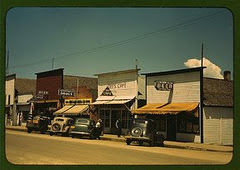
http://bookblog.kjodle.net/2011/10/king-of-the-mild-frontier-chris-crutcher/
Fans of Chris Crutcher (which in my experience includes just about anyone who has read any of his books) will welcome this insight into his life and writing.
Although he often writes about sports, it’s a bit of a surprise to learn that Crutcher was not athletically gifted as a child. This was his freshman football experience:
At the beginning of my freshman year in high school I weighed 123 pounds, with all the muscle definition of a chalk outline. I couldn’t complete a push-up. I could run a hundred yards in approximately the amount of time it took me to get a haircut. And I was terrified. My brother, John, was a junior that year, at right around six feet and 230. He started at center on offense and middle linebacker on defense, and he had waited seventeen years to get me into an arena where he and his friends could pummel me without my bawling to my parents. And pummel me they did. I couldn’t have bawled to my parents anyway; to bawl you must breathe. (49-50)
But athletics that not really the core of any of his novels. Although he recounts many childhood and teenage adventures, in which he often falls prey to his brother’s practical jokes, the source of Crutcher’s stories, and his empathy for the characters in them, is far deeper. Drawing on his experiences as a family therapist and child protection specialist provides the real source of his writing. As he puts it:
I have searched for my heroes among the stall-t truths. I always find them among people learning the art of acceptance: not acceptance of defeat or acceptance of some inability to influence their own futures, but rather acceptance of life on the planet, acceptance of the grays rather than the black-and-whites, acceptance of the astonishing range of human emotion and human behavior. (235-6)
That’s a pretty tall order for any writer, but Crutcher is a fearless writer. That fearlessness stems from his belief than the purpose of young adult literature is to reflect the truth as the author sees it, rather than to set examples of good behavior. There are a lot of would-be censors out there, especially in the world of kid lit and YA lit, but Crutcher doesn’t flinch. And when you read the story of Allie, “a four-year-old, mixed race, neglected and abused girl” he encountered as a child and family therapist, you’ll understand where he gets his backbone from (226-8).
A lot of Crutcher’s novels include anger and its aftermath as a theme, and Crutcher readily admits that as a child he had a temper and that as an adult, he “was able to make a few bucks off that temper, as a writer and as a therapist” (10). As a practicing therapist, he understands where all that anger and rage comes from:
It was clear that most of the time the temper was a product of self-contempt, aimed outward. The self-contempt came from fear, most often fear of incompetence (which is why my mother should have let me storm around in search of competence when I was still too small to do much damage)—a very difficult condition for a lot of men to admit to. Because the state of fear is such a difficult thing to identify and embrace, it usually gets expressed in anger. The bigger the fear, the great the self-contempt, therefore the bigger the anger. (10-11)
Crutcher has been there, seen that, done that, and draws on that experience to create novels with a high degree of verisimilitude—his stories are believable in a way that those of say, Ben Mikaelsen, whose stories often come across as poorly written after school specials, are not. Crutcher is a good writer, but part of goes into the makeup of a good writer is the ability to care about your characters enough to let them get hurt. Death is a near-constant presence in many of his stories. As he explains:
A student asked me recently why somebody always dies in my books. I said, because somebody is always dying in my life. As they say, without death there is no story. Probably a better way to say that is, without loss there is no story, and death is simply the trump card of loss. (163)
That’s a tough lesson to learn as an ordinary person, and it’s an even tougher lesson to learn as a writer. The hardest part of a story—for me, at least—is always the end. The end of a story is, in some ways, the death of that story: that’s it, that’s all there is, there’s nothing left. But, he adds, “the best lessons about death come from the best lessons of life” (166). A good writer knows that he can’t tie up every loose end at the end of a story. Unless your story starts with the Big Bang, then it necessarily begins in media res, and unless it ends with the destruction of the universe, it also ends in media res. If you try to tie up every loose end, you become Sisyphus. There will always be loose ends. Life, Crutcher is telling us through the subtext of his works, is messy.
Genius that he is, Crutcher combines this lesson about life with a lesson about writing:
I know the answer to the question now, by the way: why bad things happen to good people and good things happen to bad people. It came from my inner editor, that part of me that forces the wordy writer in me to dump ninety percent of all modifiers: Ask both questions again, minus the adjectives.
“Why do things happen to people?”
Just because. (166-7)
A deep humanity underlies everything Crutcher writes. Even if you are not a fan, you will find much to think about in this book. If you work with young people, this book will also provide a lot of insight into their world. Read this book.
You can visit Mr. Crutcher at www.chriscrutcher.com.
Works Cited Crutcher, Chris. King of the Mild Frontier: An Ill-Advsied Autobiography.New York: Greenwillow-HarperCollins, 2003.
- Home
- Contact
- Biography
- NCTE/ALAN 2013 Q&As
- Author Visits
-
Crutcher Books
- Other CC Books
- For Educators
- Angus -- The Movie
- Older News Briefs
- Photo Albums
- Scrapbook
- CC Videos
- Student Projects
- Censorship
- Banned Book Videos
- Teens CAN Stop Censors
- Banned Books Week
- Extras!
- CC Press
- Letters to CC
- Movie News
-
Crutcher Speeks
- Update Bantleman/Tjiong
- Nod to Gnuts
- Hip-Hop
- Good Day...
- Gun Referendum
- Free Neil and Ferdi >
- Responsi-damn-bility
- Whacking on Your Children >
- Piling On
- Biopsy Biography
- Walter Elevated Us All
- Different Direction
- Parenting Guidance
- Goodbye, Ned.
- Happy Birthday, Crutch!
- Forrest Bird Charter School
- Senator Portman
- My Gun Rant
- Maybe Now (Guns & Mental Health)
- Support Your Local Pragmatist
- So You Want to Be a Righter
- Philosophy and Humanity
- We Are Paterno
- Boy Scout "Leadership"
- Thoughts on McQueary
- To Meghan Cox Gurdon/WSJ
- India 2011
- Crutcher-Price Blog
